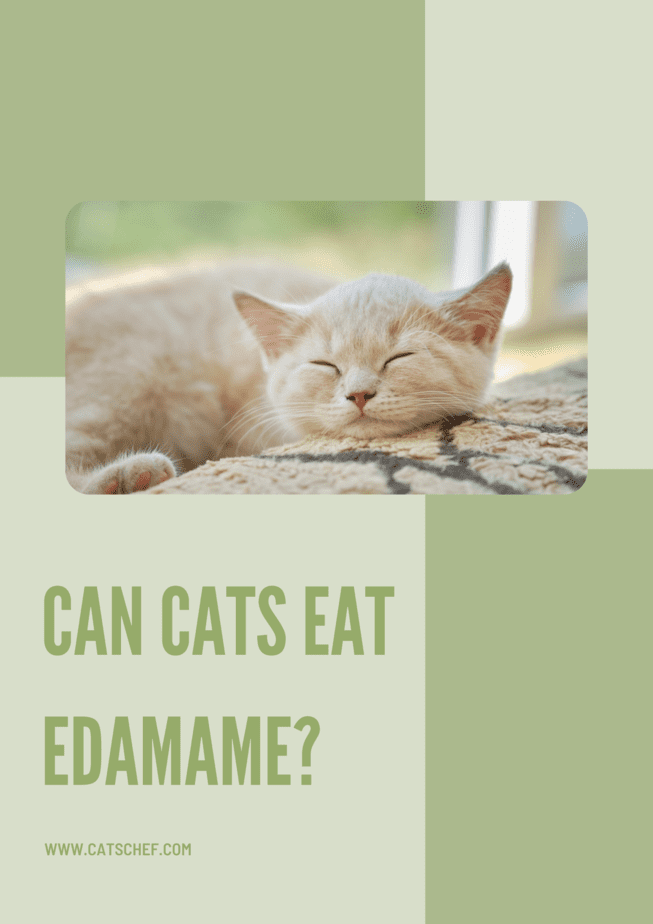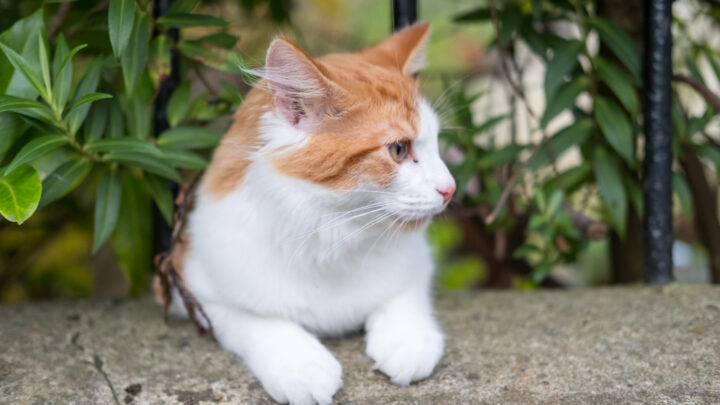Can cats eat edamame? This question inevitably arose whenever you’ve had leftovers, and your cat has been keeping a close eye on them. What could possibly go wrong with an otherwise healthy food item?
It’s a vegetable, and they’re supposed to be beneficial for you. That’s why you believe it’s safe for your cat to consume these. Edamame, on the other hand, is a type of soybean that hasn’t yet ripened.
These green, immature soybeans, sometimes known as edamame, are sold in their shells. They’re high in nutrients and can be consumed raw, boiled, baked, or fried in little amounts. Does this make them a cat-appropriate food though?
If humans have access to various rich cuisines, why shouldn’t cats as well? If you want to treat your prince(ss) with some greens, maybe edamame is just the right choice of food.
Is edamame safe for cats?
Edamame beans are a common ingredient in East Asian cuisines because they are tasty, crunchy, and nutritious. They can be eaten raw or heated in a variety of methods, like frying, baking, and more.
It’s natural to believe that these beans are good for cats because they’re so healthy. On the other hand, you might be wondering if they are safe for cats to eat at all? Let me assure you that you shouldn’t be concerned about your cat eating edamame because not all human foods are harmful to cats.
In general, cats can eat edamame without any problems because they’re not poisonous. However, just because these beans aren’t harmful doesn’t imply eating them should become your pet’s habit.
Health benefits of edamame
Vegetables like edamame have a wide range of health benefits for humans and cats alike. However, keep in mind that these shouldn’t be your pet’s primary source of nutrition, nor should they be used to substitute the meat she requires on a daily basis.
It doesn’t rule out the possibility of her having them on occasion. Edamame is an excellent kitty food, especially if you want to include some greens in her diet. Other beans can also be a tasty treat for your pet on occasion.
Edamame, like most non-meat human foods, provides less nutritional value to cats than meat, hence it’s primarily used as a treat. The good news is that they’re packed with nutrients which is why they’re called superfoods.

What can be found in edamame?
Edamame includes a lot of calcium and vitamin K. These nutrients are required on a regular basis by cats in order to maintain their strength and well-being. They’re particularly important for her bones and teeth since they prevent fractures.
Calcium is an electrolyte that regulates the fluid contents in a cat’s cells. It also aids in the transmission of energy impulses within the cat’s body. In other words, calcium is required for contracting muscles and the proper functioning of the nervous system in your cat.
Iron health supplements are essential if you have an active furkid who spends her days jumping and climbing trees. Iron is required for the proper function of red blood cells, which transport oxygen from the lungs to all other cells in a feline’s body.
Cats run a risk of developing anemia if this supplement isn’t included in their diet. It’s a condition marked by fatigue, weakness, and lightheadedness.
Magnesium is essential for cats’ bodies because it aids them on a molecular level. It helps with hormone secretion, enhances enzyme activity, and strengthens bones and teeth.
This veggie is also high in vitamin C, which supports the immune system and is one of the reasons you should feed them to your pet on occasion.
Another substance typically found in edamame beans is vitamin A. This vitamin deficit may cause eyesight issues. Because cats are nocturnal animals, we wish to avoid these problems as much as possible.
Finally, we can also find vitamin E (an antioxidant) in these little veggies. It works in association with vitamin K in preventing blood clots. Other essential components found in beans include potassium, phosphorus, zinc, and thiamine.
Can cats eat edamame because of fiber?
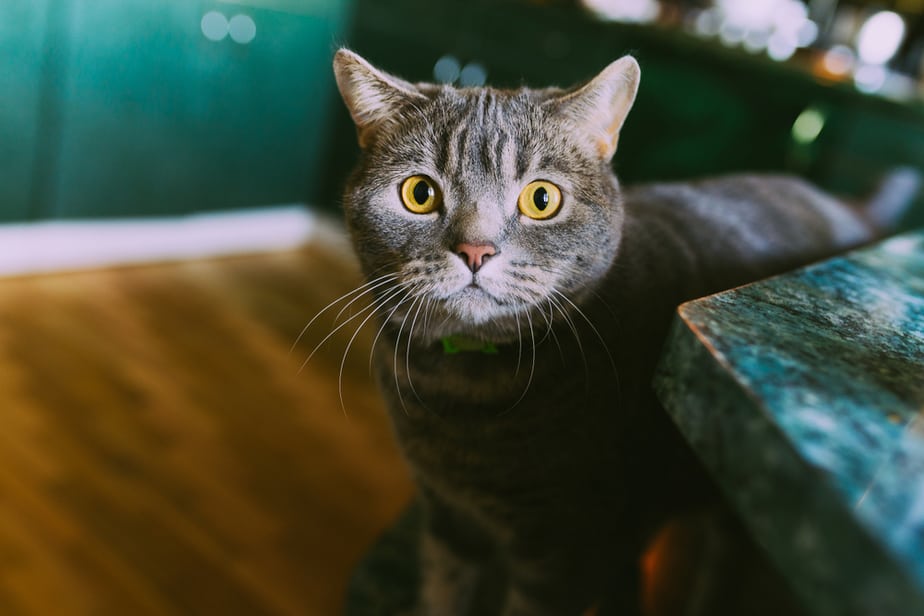
These green nibbles are high in fiber, which aids digestion and prevents diarrhea in your cat. This nutrient is required by cats on a regular basis to help regulate food in their digestive tracts.
Excess fiber, on the other hand, can be hazardous to your pet. This isn’t a cause for alarm, but it could give your pet stomach problems.
So, yes, cats can eat edamame even though they’re high in fiber. While a reasonable quantity of fiber can aid diarrhea, too much can lead to constipation. So, be careful not to overdo it with the edamame and end up doing more harm than good.
What about the fat content?
The majority of the lipids in edamame are monounsaturated and polyunsaturated fats, which are excellent for your furkid’s health. Choosing them over saturated fats on a regular basis lowers the risk of cardiovascular disease.
Saturated fats, which are mostly found in creamy foods like margarine, can raise cholesterol levels in people and cats. This increases the risk of heart stroke and further leads to the development of heart disorders.
Furthermore, these fats might cause your pet to become overweight, which can lead to a variety of health problems. In many cases, increased joint pressure is all that’s required for arthritis to develop in cats.
However, you don’t have to worry about these because the healthy fats found in edamame fuel your pet’s body as an important energy source.
Now for the big win – protein
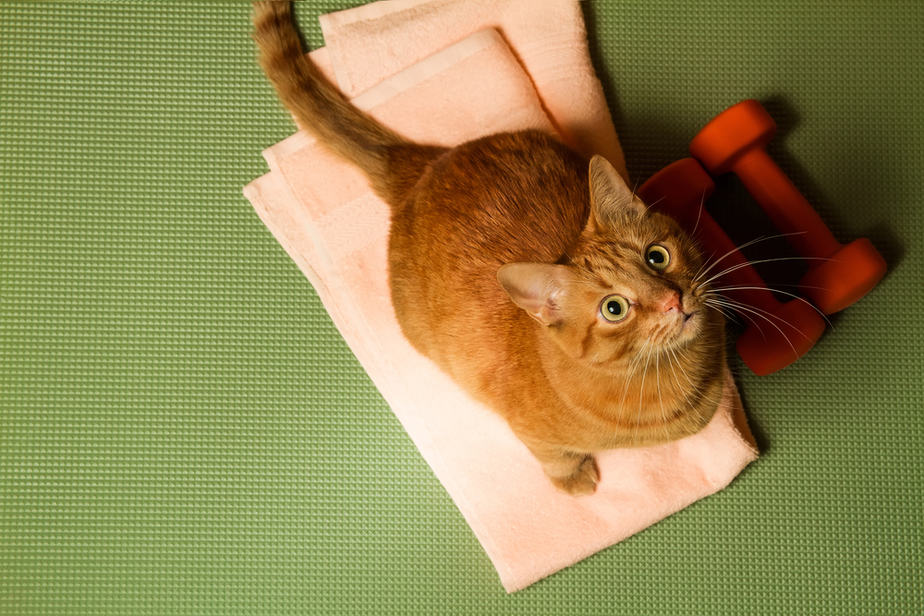
Edamame has a complete protein, which means it’s made up of nine amino acids that are good for your cat’s growth. Your furry friend will get enough energy because of the high protein content.
For cats, proteins are essential for their development; and if she doesn’t get enough, she’ll suffer. Animal-derived protein is the finest choice for your feline buddy.
Other plant-based proteins may be good for your cat’s health, but they don’t absorb as well as animal proteins. Because cats’ digestive systems aren’t intended to break down plant components, they have a difficult time absorbing all of the nutrients included in plants, including protein.
Animal proteins, on the other hand, contain fatty acids and vitamins that plant proteins don’t. But, cats can benefit from eating edamame because it contains amino acids. Cats have a higher need for protein and amino acids than dogs.
Felines break down protein at a fast rate and are unable to adapt to decreased dietary sources by slowing down the rate of that breakdown.
A gluten-free veggie!
Another good news is that edamame is gluten-free. This is music to ears to people and cats who can’t tolerate gluten. Nowadays, gluten products like grains serve as fillers in many cat foods.
It’s often a hard and expensive task to avoid these types of foods. But, if you have a feline that has developed this allergy, you have one solution to the problem!
Try finding foods with edamame or tapioca (another gluten-free ingredient found in cat food). These can serve as great substitutes for the usual fillers – grains.
Can cats eat raw edamame?
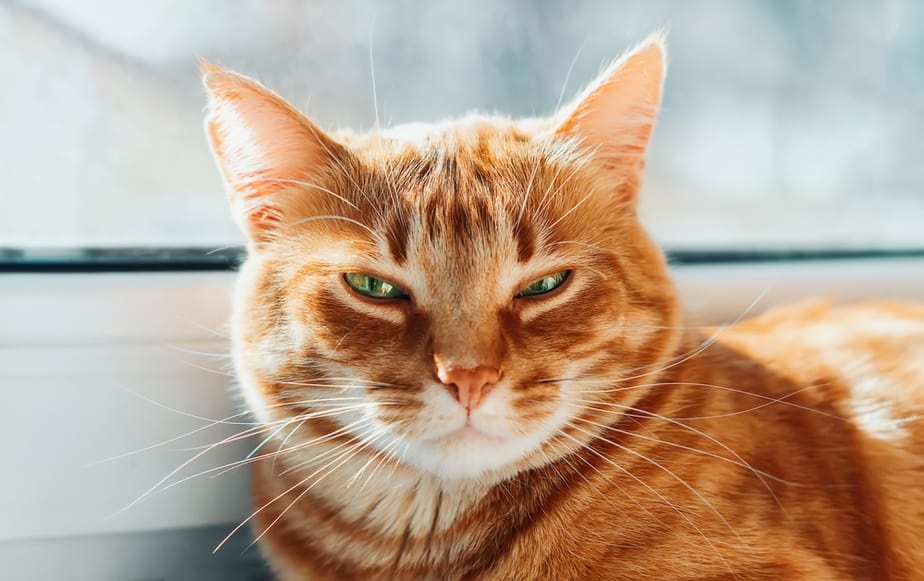
You shouldn’t feed your cat raw edamame. Although she’s unlikely to find it appealing, uncooked edamame does pose certain health hazards. Phytohemagglutinin poisoning can occur in cats who consume these raw beans on a frequent basis.
A handful of raw edamame, whether organic or not, can be enough to set it off. The most noticeable signs of this poisoning are nausea, violent vomiting, and diarrhea. Do not ignore these symptoms, and take your cat to the veterinarian right away.
Raw edamame can also spread E. coli, which is one of the main reasons cats should avoid eating them. E. coli is a pathogen that’s associated with a variety of raw foods, including crab meat.
Edamame from a can?
If your cat consumes too many canned beans, she may experience some trouble. Canned foods usually contain high levels of sodium which isn’t good news for felines.
Salt poisoning causes vomiting, diarrhea, increased thirst, and frequent urination. Two further clinical signs to be aware of are inappetence and exhaustion.
Preservatives are another cause for concern. They’re included in practically every canned item to keep the contents fresh. They extend the shelf life and freshness of any product, while also improving the flavor and color.
On the other hand, preservatives can be harmful to your pet’s health in the long run. They can cause feline thiamine deficiency, which can result in major neurological issues. This disorder can be lethal if left untreated.
We hope this clears up the debate around the question of whether cats can eat raw edamame. You should take things seriously when introducing any new foods to your kitten’s diet, and make sure you do the research first.
Why can’t cats eat edamame?

Although this isn’t a common occurrence, you should be aware of the dangers. Cats can eat edamame, but only those that have been cooked. Choking is also a risk when it comes to raw veggies. If your pet is a guzzler, she’s more likely to have food trapped in her throat.
In their uncooked state, edamame will absorb moisture from your cat’s gut, which may or may not soften them before causing significant obstruction. While cooked beans are fine for cats to eat, raw beans should be avoided.
Is your cat allergic to edamame?
Certain foods may cause allergic reactions in your cat. Respiratory issues, skin rashes, a stuffy nose, and other symptoms may manifest as symptoms. Pure-meat cat diets are difficult to come by these days. It’s conceivable, but you’ll have to pay a premium for that luxury.
Other, more common foods that cats are allergic to are chicken, grains, as well as seafood like a crab. Allergy is your cat’s immune system defending itself so these vary from one to another. Felines are individuals just like humans and some of the rules don’t apply to every furball out there.
Do cats mix well with plants?
If you think you shouldn’t feed your pet unripened foods, you may wonder can cats eat soybeans instead of edamame.
Soybeans, often known as soya beans, are used in a variety of dishes. They are abundant in vegetable protein. Here’s a quick explanation if you haven’t realized what’s wrong.
Although soybeans are high in protein, which may assist your health, they’re mostly made up of plant protein. Your carnivorous pet’s digestive system isn’t set up to handle these, therefore, it could be an issue.
All in all
If you’ve asked yourself can cats eat edamame, you came to the right place. Edamame is a nutrient-dense food that could benefit both you and your furry pal.
These green veggies are best consumed in moderation and as a treat. Leave out any seasonings and spices as they could easily hurt your feline.
Edamame can be a great addition to your cat’s diet because they’re rich in protein, fiber, vitamins, and minerals. However, don’t make feeding edamame to your pet a habit. They’re still a plant material and cats can sometimes have a hard time breaking it down.
Canned edamame should be off the limits for your furkid because they contain high amounts of salt and preservatives. Raw edamame isn’t recommended because they’re a choking hazard and harder to digest.
